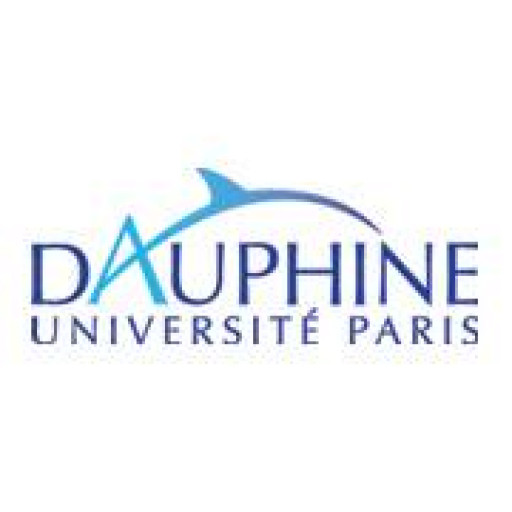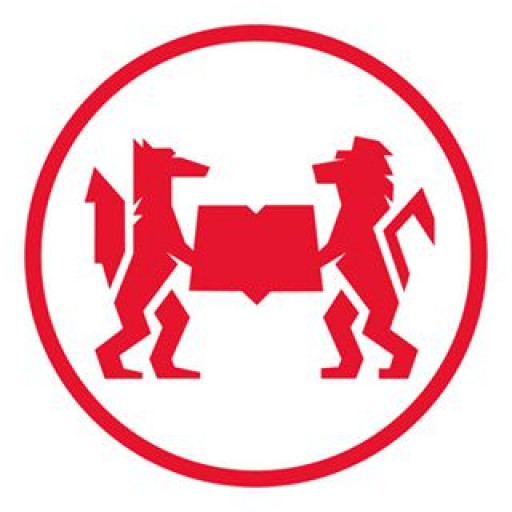Photos of university / #univdauphine
The International Affairs and Development program at Paris Dauphine University - PSL is a comprehensive and interdisciplinary course designed to prepare students for careers in global policy, international organizations, development agencies, and related fields. This program offers a deep understanding of the complex political, economic, social, and environmental issues that shape our world today. Students will engage with a diverse curriculum covering international relations, global governance, economic development, sustainable development, international law, and diplomatic strategies. The program emphasizes critical thinking, analytical skills, and practical knowledge, enabling graduates to analyze global challenges and contribute to effective policy solutions.
Throughout the course, students will benefit from a blend of theoretical frameworks and real-world case studies, working closely with faculty who are experts in international affairs and development. The curriculum includes modules on conflict resolution, human rights, international trade, security studies, and environmental sustainability, providing a well-rounded education that prepares students for the dynamic nature of international careers. Additionally, the program encourages experiential learning through internships, seminars, and conferences, facilitating direct engagement with professionals and organizations active in the international arena.
Paris Dauphine University - PSL also offers opportunities for linguistic and cultural immersion, recognizing the importance of multilingualism and intercultural competence in international careers. Students will have access to language courses and international exchanges, broadening their global perspective. The program aims to develop not only academic excellence but also leadership skills, ethical awareness, and a commitment to sustainable development. Graduates will be equipped to work effectively across borders and sectors, contributing to international peace, development initiatives, and policy innovation.
Overall, the International Affairs and Development program at Dauphine provides a rigorous education tailored for those passionate about making a positive impact on the world stage, fostering a new generation of global leaders committed to addressing the pressing issues of our time.
Semester 1
Economy: mandatory
- Anglais, 3 ECTS
- Econométrie I ou Econométrie II, 6 ECTS
- Cycle de conférences sur les organisations internationales, 3 ECTS
- Macroéconomie, 3 ECTS
- Economie Internationale II, 3 ECTS
Economy: optional
- Politique internationale, 3 ECTS
- Mondialisation des entreprises, 3 ECTS
- Introduction SAS/STATA, 3 ECTS
- Education, santé et développement, 6 ECTS
- Financement du développement, 3 ECTS
- Sociologie des conflits I, 3 ECTS
- Practicing peace, 3 ECTS
- Mondialisation et environnement, 3 ECTS
- Projet de développement durable, 3 ECTS
- Introduction à la Supply Chain, 3 ECTS
Sustainable Development: mandatory
- Anglais, 3 ECTS
- Econométrie I ou Econométrie II, 6 ECTS
- Management et développement durable, 3 ECTS
- Mondialisation et environnement, 3 ECTS
- Corporate Social Responsibility, 3 ECTS
- Projets de développement durable, 3 ECTS
Sustainable Development: optional
- Politique internationale, 3 ECTS
- Cycle de conférences sur les organisations internationales, 3 ECTS
- Macroéconomie, 3 ECTS
- Mondialisation des entreprises, 3 ECTS
- Economie Internationale II, 3 ECTS
- Education, santé et développement, 6 ECTS
- Sociologie des conflits, 3 ECTS
- Langue vivante 2, 3 ECTS
Peace studies: mandatory
- Politique internationale, 3 ECTS
- Anglais, 3 ECTS
- Mondialisation des entreprises, 3 ECTS
- Financement du développement, 3 ECTS
- Sociologie des conflits I, 3 ECTS
- Practicing Peace, 3 ECTS
- Cycle de conférences sur les organisations internationales, 3 ECTS
Peace Studies: optional
- Econométrie I ou Econométrie II, 6 ECTS
- Macroéconomie, 3 ECTS
- Economie Internationale II, 3 ECTS
- Introduction SAS/STATA, 3 ECTS
- Education, santé et développement, 3 ECTS
- Introduction à la Supply Chain, 3 ECTS
Semester 2
Economy: mandatory
- Microéconomie, 3 ECTS
- Microéconométrie, 6 ECTS
- Politiques de développement, 3 ECTS
Economy: optional
- Economie Internationale III, 6 ECTS
- Mémoire, 6 ECTS
- Econométrie des variables qualitatives, 6 ECTS
- Approfondissement SAS/STATA, 3 ECTS
- Pauvreté, inégalités et ouverture commerciale, 6 ECTS
- Politiques macroéconomiques, 3 ECTS
- Histoire et développement économique, 3 ECTS
- Analyse économique des conflits, 3 ECTS
- Introduction à la finance de marché, 3 ECTS
Sustainable Development: mandatory
- Environmental Law, 3 ECTS
- Philosophie du développement durable, 3 ECTS
- Microfinace, 3 ECTS
- Sustainable Finance, 3 ECTS
- Natural Resource Economics, 3 ECTS
- Théorie des organisations, 3 ECTS
- Environmental and energy economics, 3 ECTS
- Economie et société, 3 ECTS
Peace studies: mandatory
- Droit international, 3 ECTS
- Théorie de la décision, 3 ECTS
- Anglais renforcé, 3 ECTS
- Protection européenne et internationale des droits de l'Homme, 3 ECTS
- Culture et philosophie de la paix, 3 ECTS
- Traitement de l'actualité, 3 ECTS
- Sociologie des conflits II, 3 ECTS
- Gestion de projets et Peacebuilding, 3 ECTS
Peace studies: optional
- Pauvreté, inégalité et ouverture commerciale, 3 ECTS
- Sociologie des religions, 3 ECTS
- Environmental and energy economics, 3 ECTS
- Genre et inégalités, 3 ECT
Master’s Year 2 – specialization streams
- International Affairs
- International Economics and Development
- Sustainable Development: Corporate and Institutional Responsibility
- International Supply Chain Management
- Peace Studies
- International Economic Assessment
The program is open to French and foreign students who hold a Bachelor’s degree (Bac + 3) in Management, Economics, or the Social Sciences, or a degree officially recognized as equivalent from an Institut d’Etudes Politiques (IEP), a Grande École, or a Grand Établissement.
- The AID Master’s program accepts up to 100 students a year.
- All admissions decisions are based on your online application form and supporting documents.
Some of our admissions criteria are:
- Work experience (internships …).
- International experience.
- For Economics applicants: excellent academic performance at the Bachelor’s level
- For Peace Studies applicants: participation in civic and humanitarian activities during your Bachelor’s.
- For Sustainable Development applicants: participation in environmental projects and volunteer activities during your Bachelor’s.
Proficiency in English (excellent level required).
- Admission to Year 2 of the APRS Master’s program: for conditions, see the webpage dedicated to your choice of stream
For the 2018-2019 academic year, tuition and fees will be calculated based on gross taxable income for the 2016 fiscal year (2017 French tax declaration). The 2017-2018 tuition scale is as follows:
- Income below 35,000 euros: 243 euros (Standard French Public University Tution)
- Income between 35,000 and 40,000 euros: 1,680 euros
- Income between 40,000 and 50,000 euros: 2,240 euros
- Income between 50,000 and 60,000 euros: 2,800 euros
- Income between 60,000 and 70,000 euros: 3,360 euros
- Income between 70,000 and 80,000 euros: 4,000 euros
- Income between 80,000 and 100,000 euros: 4,600 euros
- Income between 100,000 and 120,000 Euros: 5,150 euros
- Income above 120,000 Euros: 6,350 euros
Students whose tax residence (if they are fiscally independent of their parents) or whose parents' tax residence is outside of the European Union and who provide a tax certificate to that effect, pay a flat tuition of 6,350 euros and are not eligible for any reductions or waivers.
Qualified Tuition Reduction
Student's whose gross income or whose parent's gross income is between 35,000 euros and 70,000 euros and whose tax residence is in a European Union country, may be eligible for one or both of the following two qualified tuition reductions:
- A reduction of 560 euros is available to families who have 2 or more children studying in a post-baccalaureate program. Justifying document: a photocopy of the non-Dauphine sibling's student card from the current or previous academic year.
- A reduction of 560 euros is available to students whose family's tax residence is outside of the Ile-de-France region. Justifying document: official tax notification bearing the address outside of Ile-de-France. If the family has moved outside of Ile-de-France since the last official tax notification, an official proof of domicile dated within the past 6 months may be substituted.
Students who are repeating full-time degree programs (year 1 or year 2) pay a flat 580 euro tuition fee.
International Affairs and Development at Paris Dauphine University - PSL is a comprehensive program that prepares students for careers in global governance, international organizations, development agencies, NGOs, and diplomatic services. The curriculum combines a multidisciplinary approach, integrating political science, economics, law, and sociology to give students a well-rounded understanding of the complexities of international relations and development issues. Students learn about geopolitics, international law, sustainable development, economic policies, and conflict resolution, equipping them with both theoretical knowledge and practical skills. The program emphasizes critical thinking, analysis, and effective communication, preparing graduates to operate effectively in multicultural environments and to engage with global challenges such as climate change, inequality, migration, and security.
The program is designed to include a mix of lectures, seminars, workshops, and internships, encouraging active participation and experiential learning. Students have opportunities to participate in study trips, conferences, and collaborative projects with international organizations. The faculty comprises renowned experts in international affairs, former diplomats, and researchers who bring real-world insights into the classroom. The program also offers opportunities for language acquisition and development of intercultural competencies, which are essential in international careers.
Students can benefit from Dauphine's extensive network of partner universities and international organizations, enabling student exchanges and joint research projects. Graduates of the program are well-prepared for entry into international institutions such as the United Nations, World Bank, European Union, and various NGOs, or for further study at the graduate level. The program’s location in Paris, a major hub for international diplomacy and development, provides students with unique access to diplomatic missions, policy think tanks, and international conferences.
The program typically lasts three years for the Bachelor’s degree and can be extended to include a Master’s specialization. The Master’s options focus on specific areas such as international economics, global governance, or sustainable development, allowing students to tailor their education to their career goals. Throughout the course, students are encouraged to develop their analytical capabilities, research skills, and understanding of international policies, making them competitive candidates in an increasingly interconnected world.
Overall, International Affairs and Development at Paris Dauphine University - PSL offers a rigorous, practical, and internationally oriented education that prepares students to address some of the most pressing issues facing the world today. It fosters critical, ethical, and innovative thinking, providing students with the tools needed to pursue impactful careers in the field of international affairs and development.







